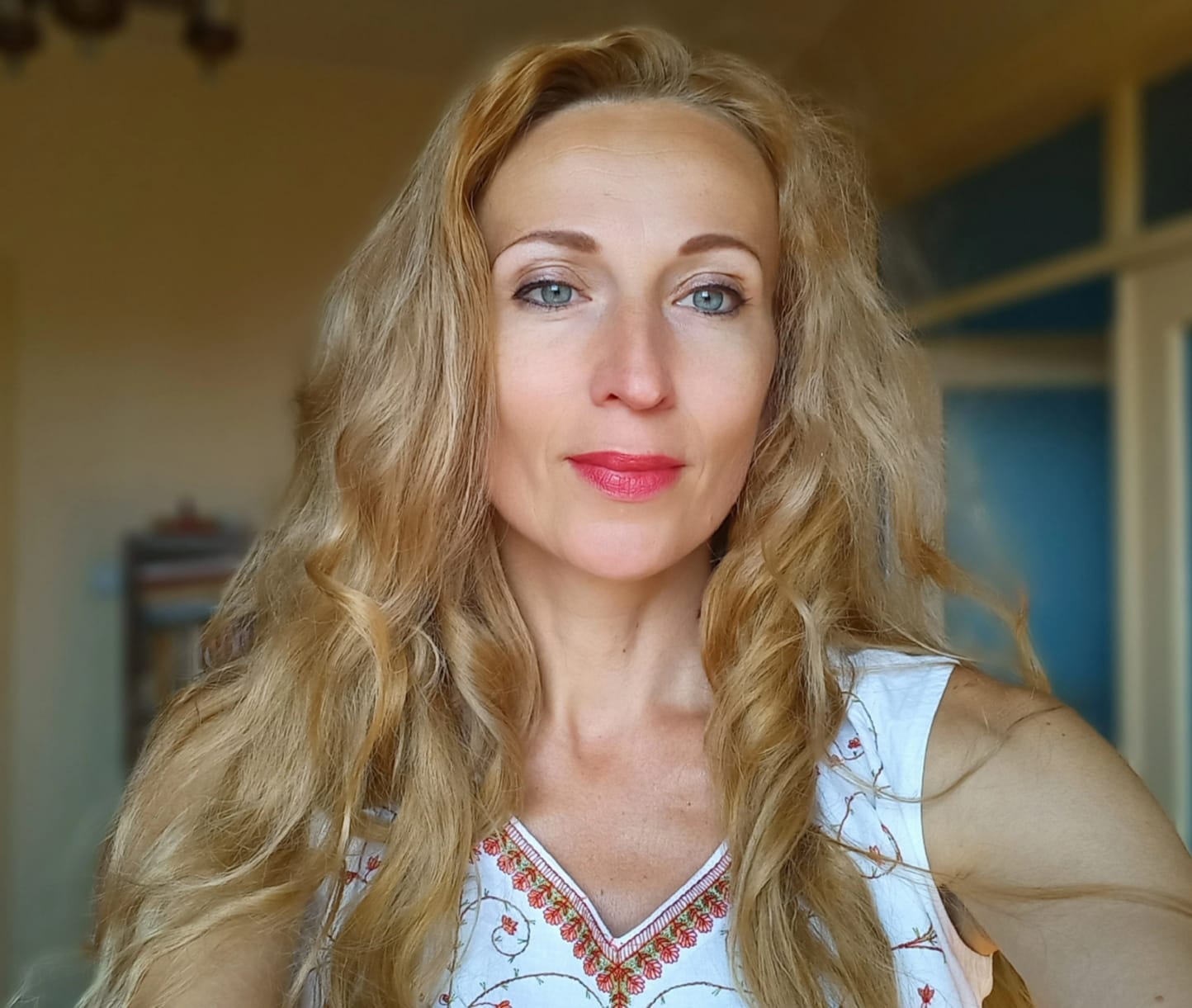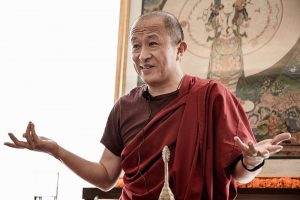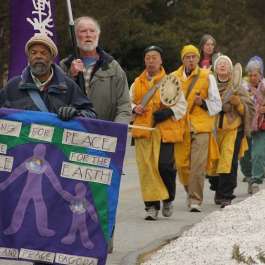
Tulku Lobsang Rinpoche is considered one of the most successful Tibetan Buddhist teachers in the West. He has made ancient Tibetan wisdom accessible for people from different backgrounds, translating it to fit the challenges of the modern world. My first meeting with Rinpoche was in virtual space. I have watched many of his YouTube videos and one of them touched me in a very profound way—his interpretation of the Heart Sutra as a lesson of love.
It is believed that the great Indian philosopher Nagarjuna (150–250) received the Heart Sutra, belonging to the Prajnaparamita (Perfection of Wisdom) category of Mahayana Buddhism, from nagas (serpent deities). The main theme of the sutra is emptiness, but in his teachings Rinpoche emphasizes that the sutra it is a lesson of love, and that the essence of love is being free.
Last year I met Tulku Lobsang in person during his tummo (Inner Fire Meditation) retreat in Germany. This year, from 6–9 April, I joined his program in Mallorca—the largest island in the Spanish Balearic Islands archipelago. At the end of the program, I had an opportunity to interview Rinpoche and discuss the topic of love and freedom.

Tulku Lobsang was born in the traditional Amdo region of Tibet in 1976, and began his Buddhist education at the age of six, when he entered Sowa Monastery, one of the local Bon tradition monasteries. At the age of 13, he was recognized as the eighth reincarnation of Nyentse Lama and was enthroned. He continued his studies in Labrang Monastery—one of the six great monasteries of the Gelug school of Tibetan Buddhism—focusing mainly on Tibetan medicine and astrology. In 1993, he left Tibet and entered Gaden Shartse Monastery in southern India, where he spent five years intensively studying classic Buddhist texts.
Tulku Lobsang received Buddhist teachings from all of the Tibetan traditions and, since 2000, has been traveling to numerous countries to give teachings on Tibetan Buddhist philosophy, medicine, and astrology. In 2002, he established an international Buddhist medical organization, Nangten Menlang (School of Inner Medicine), which offers worldwide programs on various aspects of Tibetan Buddhist culture. Some of the programs include lu jong (Tibetan healing yoga), Tog Chod (Wisdom Sword), tsa lung (Tibetan yoga of channels and energy), tummo (inner-fire meditation), traditional Tibetan medicine, kum nye massage, and other meditation practices such as Fearless Death and mindfulness.

I asked Tulku Lobsang for his view on the way people perceive Buddhism in the West. His answer stressed an essential aspect of Buddhist thought: “Buddhist teachings are based on reason. Therefore, teaching Buddhism in the West is easier than teaching Buddhism in the East. There are many great Western Buddhists who learn very well and have a good understanding of the teachings, but there are few great practitioners. Westeners usually have a more intellectual approach, however there are those who are also really devoted to practice.” Rinpoche added that he had noticed how Europeans have a great wish to live happy and healthy lives, and that they are open to exploring and practicing traditional Buddhist techniques to train body and mind, which he offers, for this reason. He explained how their motivation grows: “When they feel benefit from these techniques, they have a stronger motivation to practice.”
According to Rinpoche’s teachings, love is an essential part of a healthy and balanced life, along with proper food, sleep, and physical activity. I asked him how we can use love as a medicine in our daily life, and his answer outlined the difference between love and attachment: “Love and attachment are very similar, but not the same. If you want to hold someone, this is not love, but attachment. Most people don’t realize what they practice. If they really practice authentic love, this means they have to be completely open. Love means to give without expectations, and giving means to be open. When you are open, you are healed. Closing yourself always creates pain and physical and mental illness.” I asked him how we can be open and avoid the tendency of attachment while loving. Rinpoche answered, “You need special training and Buddhist teachings have many methods to help you to be open. You need to find a good teacher who can give you instructions, then you have to understand and practice them. There is no miracle that can help you; what you need is proper training with a teacher.”

At the end of our conversation, I asked Tulku Lobsang what the greatest benefit of the Buddhist path has been in his daily life. His short answer was inspiring: “Helping others is your biggest power. The best message of Buddhism for me is the potential to change yourself—this is your freedom.”
I reflected once again on his words from the Heart Sutra video: “What is freedom? Change! Your nature is change. What does it mean if your nature is change? Your nature is freedom. Freedom never comes from the outside and it never leaves you. To look at your nature is not easy. It is very scary because your nature is an empty space. There is nothing to hold.”
Understanding emptiness is a key that can open our hearts to great compassion. And according to Mahayana and Vajrayana, emptiness and compassion are the two wings of the bird of awakening. But the understanding of emptiness is not an intellectual process; it is a path that requires training and guidance from a teacher. The path aims to introduce us to our true nature, which Tulku Lobsang explains as consisting of unconditional love, and the essence of this love is being free: “When you love, you say ‘go:’ ‘Go, go, beyond go, completely beyond go, be love.’”













